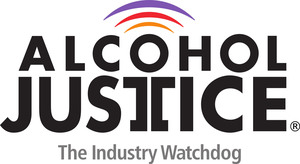Alcohol Justice Reports Senator Wiener Targets Riverside County for 4 a.m. Late Night Party Zones
Assemblymember Eduardo Garcia Buys Into Expanded Drinking (and Alcohol-Related Harm) in the Coachella Valley
SAN RAFAEL, Calif., Aug. 10, 2018 /PRNewswire/ -- California Alcohol Policy Alliance (CAPA), and Alcohol Justice, are questioning the logic of Senator Scott Wiener's rush to add additional Riverside County cities to his floundering 4 a.m. bar bill – SB 905. Palm Springs, Cathedral City, and Coachella were recently amended into his bill to make them "pilot cities" for Wiener's dangerous late night drinking experiment. It should be noted that Assemblymember Eduardo Garcia was suspiciously the deciding "yes" vote to move SB 905 out the Assembly Governmental Organization Committee. The bill is currently in the "Suspense" file in Assembly Appropriations Committee. It was in this committee last year that Wieners first attempt to push a later last call bill failed.
"Senator Scott Wiener is desperate for additional support on his second attempt to extend last call," stated Bruce Lee Livingston, Executive Director / CEO of Alcohol Justice. "The sting of failing last year to push bar times to 4 a.m. is driving his devious strategy this year. Riverside County is now in his sites to experiment with noisy and dangerous early morning drinking with the acquiescence of mayors in Coachella, Palm Springs and Cathedral City." Livingston added: "Cities like Palm Desert and La Quinta will suffer DUIs and deaths from patrons, bar-hopping to the later last call cities."
SB 905 would launch a dangerous nine-city, five-year experiment that would expose over 76% of California's population to increased alcohol-related harm. The state currently suffers over 10,500 alcohol-related deaths and $34 billion in costs annually. The California Office of Traffic Safety (OTS) reported recently that fatal DUI is a chronic, worsening problem for the state. Between 2014 and 2016, alcohol-related crash deaths rose 21%. That number can only go up with two additional hours of alcohol consumption. Thus, the only benefit of selling alcohol between 2 and 4 a.m. will be greater profits to bar, restaurant, and club owners in the party zones the bill will create. While the public and all levels of government will be forced to continue to cover the costs of mitigating the harms that follow.
Earlier this week at a press event in Los Angeles, opponents to the bill were adamant about stopping the measure. "Today we are here to speak with a loud, collective voice that residents of Los Angeles WILL NOT be lab rats in Senator Scott Wiener's 4 a.m. bar bill experiment," stated Kurtwood Smith, Actor and Activist. "And neither will the residents of the 8 other cities and surrounding "splash zones" throughout the state that this bill threatens. Only a dumba** would value nightlife over all life and vote YES for this bill. California does not need Wiener's dangerous nine-city, five-year experiment," he added.
There is clear and compelling data that Wiener has consistently ignored or dismissed from a U.S. Centers for Disease Control and Prevention (CDC) task force led by Jonathan Fielding, M.D., M.P.H., M.A., M.B.A, Distinguished Professor UCLA Fielding School of Public Health and UCLA Geffen School of Medicine. The U.S. Community Preventive Services Task Force found in a peer-reviewed, global meta-analysis that every 2-hour increase in last-call times results in greater vehicle crash injuries and E.R. admissions. (Hahn et al., 2010) Dr. Fielding stated, "...I have no reason to believe that an increase in hours of sale anywhere in the U.S. would have different results."
"SB 905 is not good for Los Angeles County, Riverside County, San Francisco County, Sacramento County or any of California's 58 counties," said Livingston. "It promises greater revenue through greater alcohol sales, but you can't have the revenue without more noise, more drunkenness, more street fighting and more drunk driving. That extra two hours will produce extra money for the businesses at the expense of the community."
The bill's author continues to mischaracterize SB 905 as a "local control" measure. But there is consensus among opponents that there is no such thing as local control in alcohol policy and that the harm from one city's decision to change last-call times will "splash" over to every surrounding community. SB 905, like the three previous failed 4 a.m. bar bills over the past 15 years, will spread alcohol overconsumption, loss of life, injury, and nuisance across the state.
"It's not just about DUIs," added Livingston. "New studies show that the annual number of 25-to 34-year-olds who died from alcohol-related liver disease nearly tripled between 1999 and 2016. Liver disease at such a young age is the result of heavy and frequent alcohol consumption. Extending last call to 4 a.m. will help more young people die from harmful consumption."
The bill now heads to the Assembly floor. There is no language in SB 905 for additional funding for a true "pilot study", or for a definitive source of revenue for local enforcement or emergency services to deal with projected increases in alcohol-related violence and traffic crashes after 4 a.m. However, between 2016 and 2018, Assemblymember Eduardo Garcia received over $50,000 in contributions from alcohol-related companies.
For More Information go to: https://alcoholpolicyalliance.org/ or https://alcoholjustice.org/
Take Action here: https://alcoholjustice.org/stop-4am to tell the Assembly Appropriations Committee to STOP SB 905.
CONTACT:
Michael Scippa 415 548-0492
Jorge Castillo 213 840-3336
SOURCE Alcohol Justice
Related Links
WANT YOUR COMPANY'S NEWS FEATURED ON PRNEWSWIRE.COM?
Newsrooms &
Influencers
Digital Media
Outlets
Journalists
Opted In




Share this article